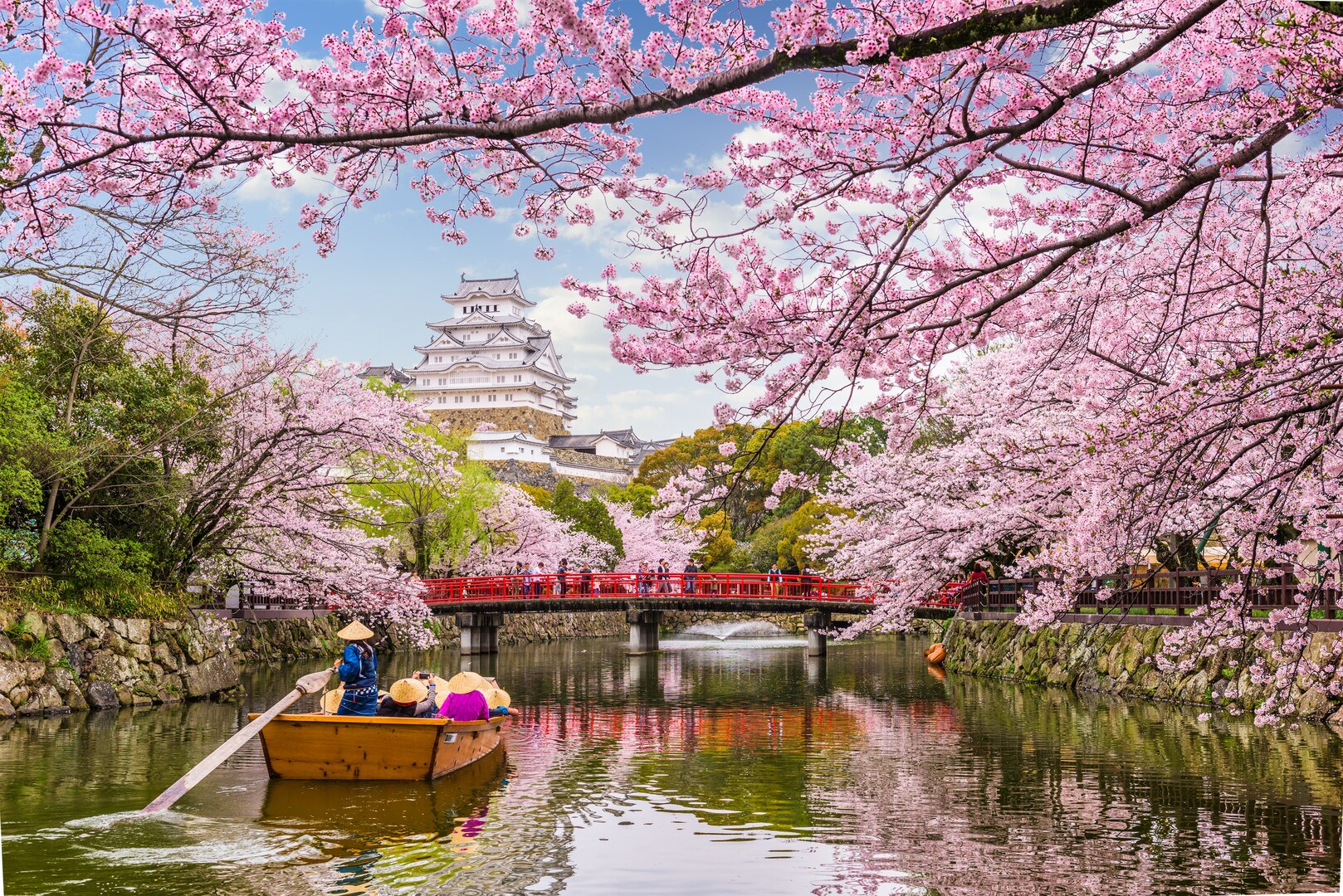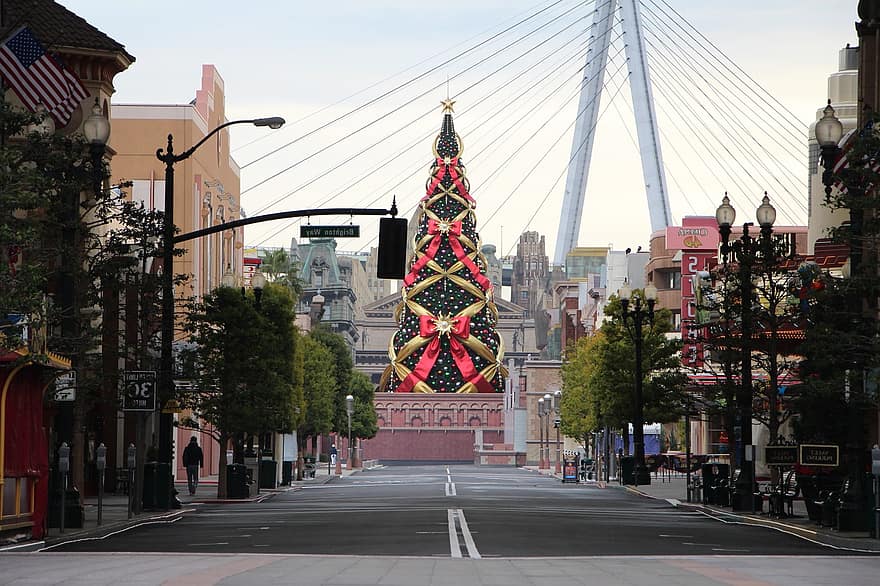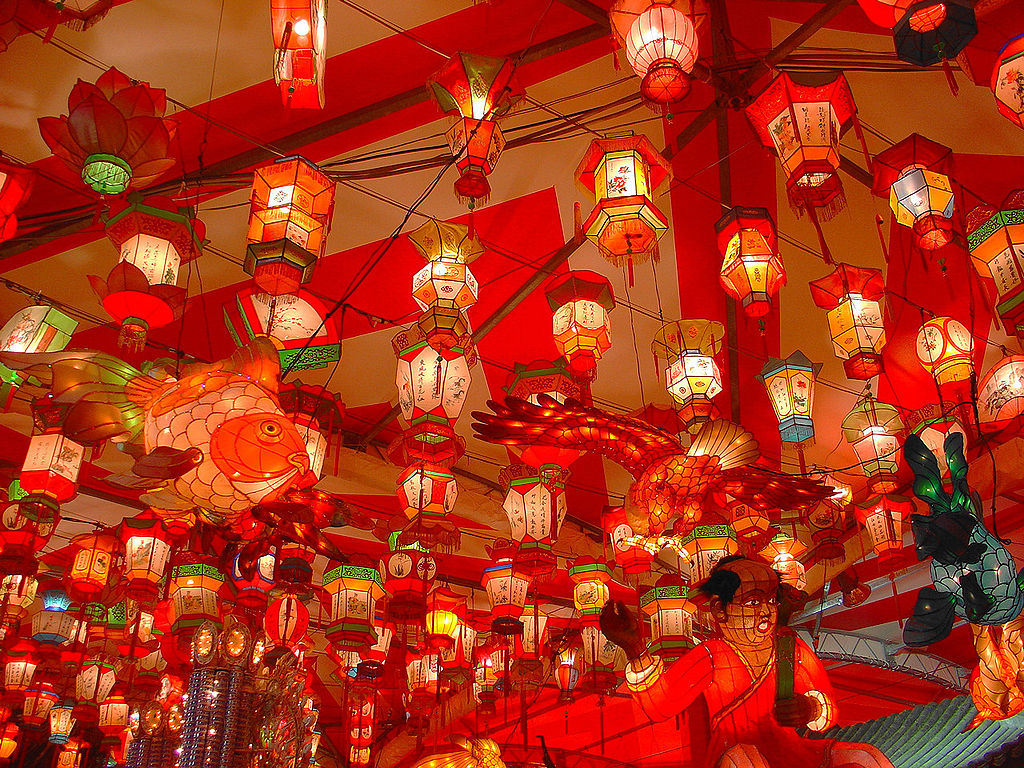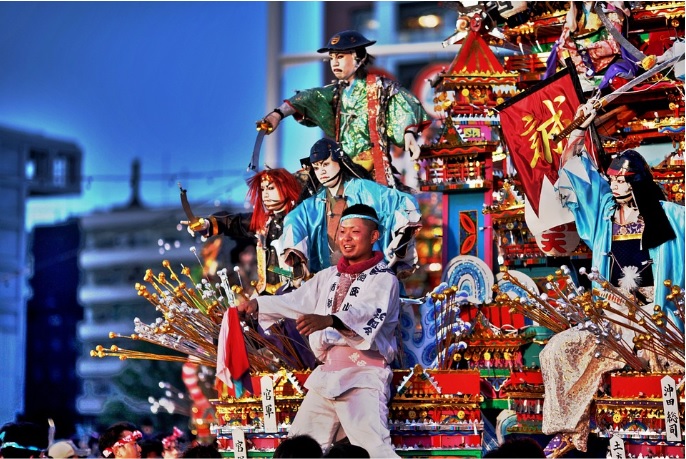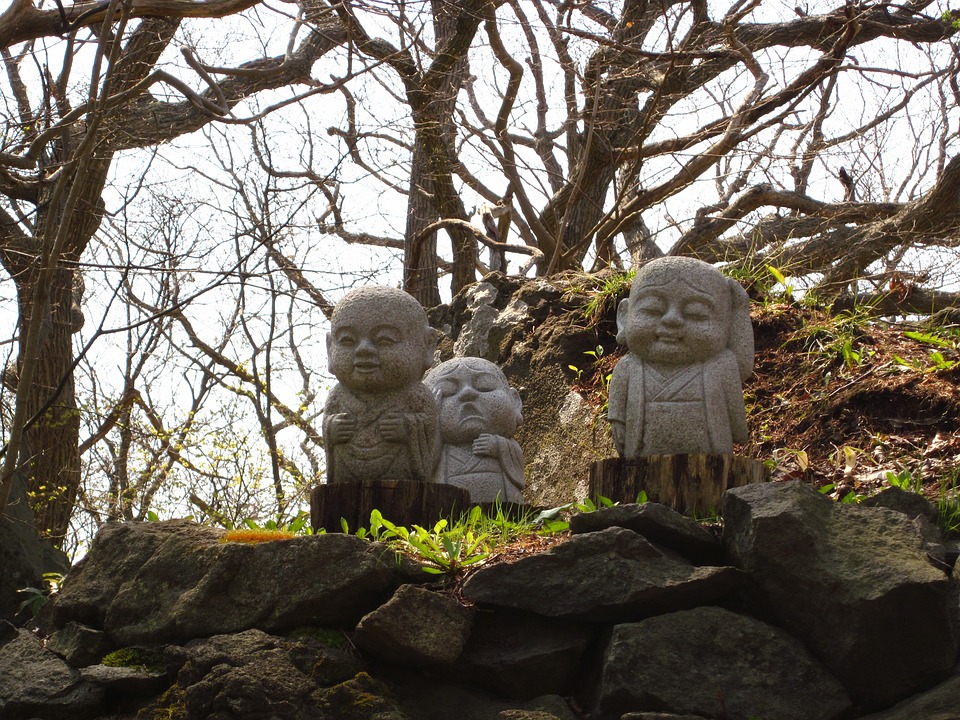
When you traverse in Japan, especially in temples and graveyards, you may have already encountered little stone statues, sometimes wearing a robe or red bib around their necks, with a hand-knitted cap. These aren't just cold stone figures to ignore, because they are actually representation of the Jizo Bosatsu, the god and guardian of travelers, protector of the children who died early or unborn, and redeemer of the lost souls and all beings trapped in hell.
Jizo Botatsu (Ksitigarbha Bodhisattva in Sanskrit) or O-Jizo-Sama as often respectfully called, is one of the beloved of all Japanese divinities. You can see them in groups, or as one; sometimes carrying a baby. Although the statues can also be formed by clay or metal, they are mostly carved in stones--one of the earliest figures worshipped. Jizo often translates to "Womb of the Earth", for JI means earth, and ZO means womb, or "repository of treasure", or "store house".
The deity is the only Boddhisattva, which resembles a monk-- shaven head, very plain with no intricate embellishments, no royal attire. It is always dressed with a robe, as simple as the monks.
Locales, especially the women dress them, to give thanks for saving a child from illness or to protect one in the after-life. The women also pray to Jizo to protect their children, for fertility, and easy delivery.
Jizo belongs to the 13 Deities (Jusabutsu) of the Shingo sect of Esoteric Buddhism in Japan.
Whenever you see one, stop, bow, and offer a little prayer.
